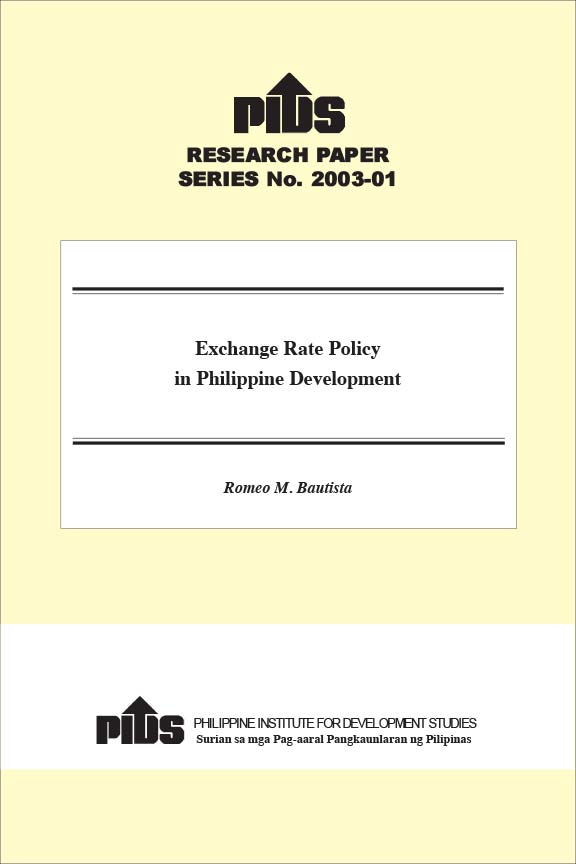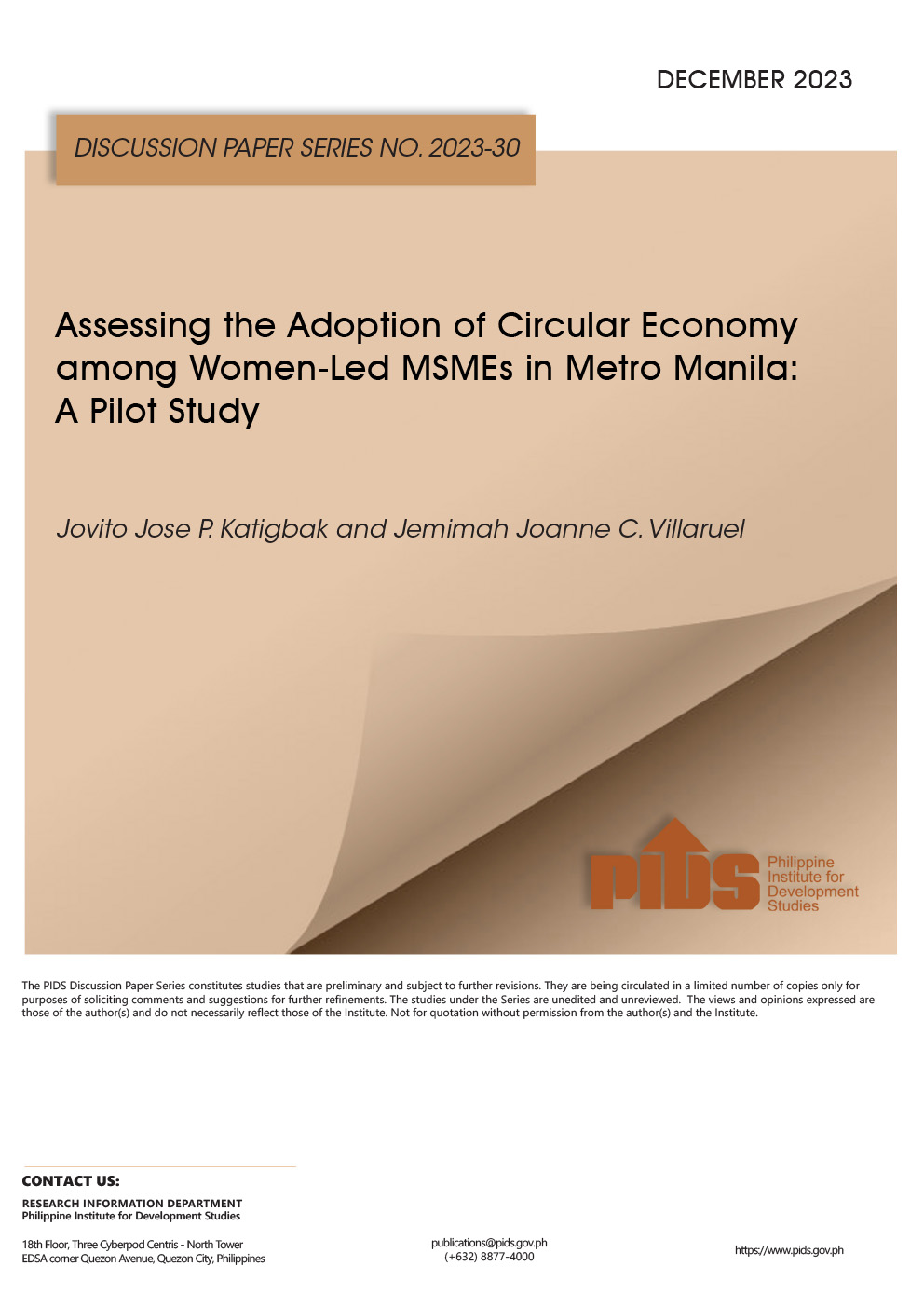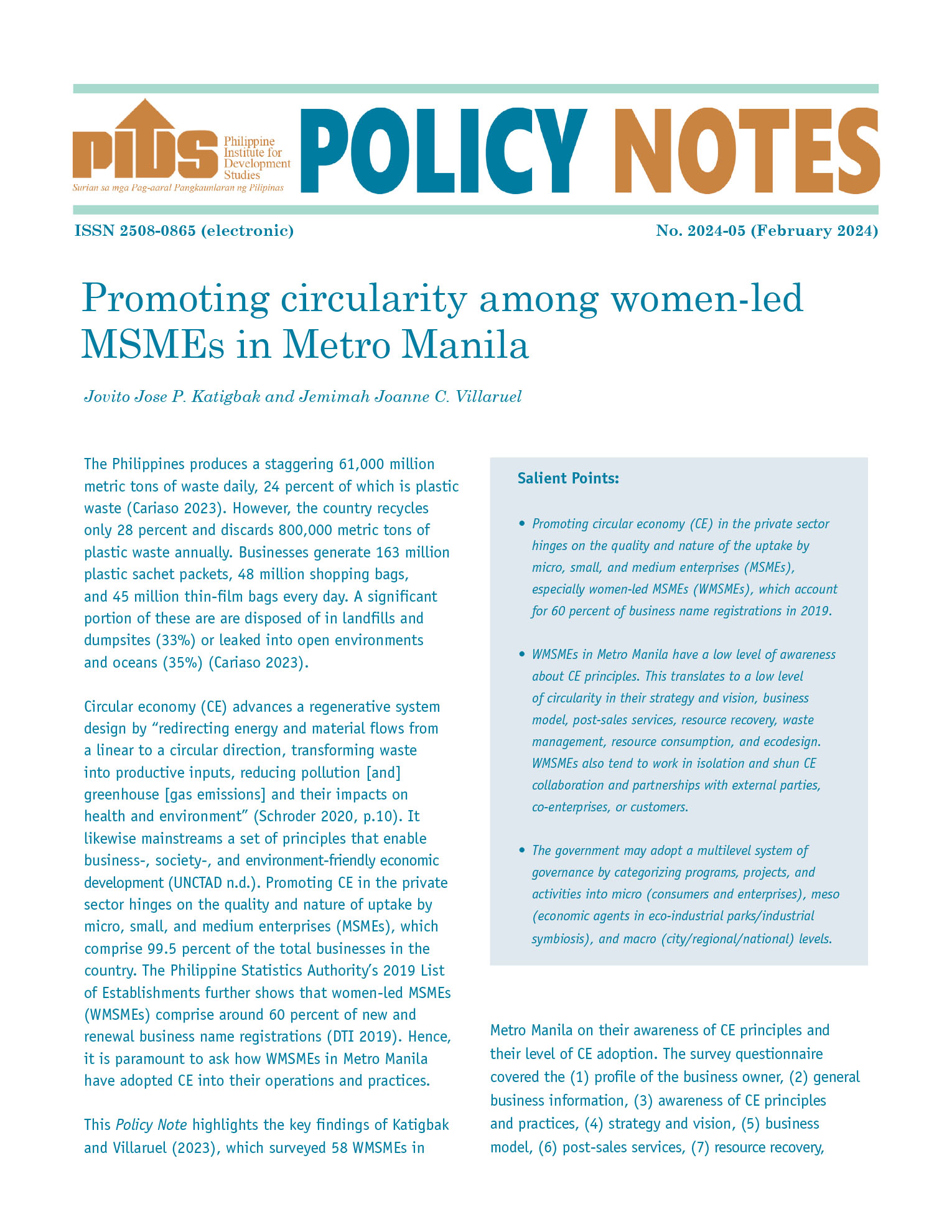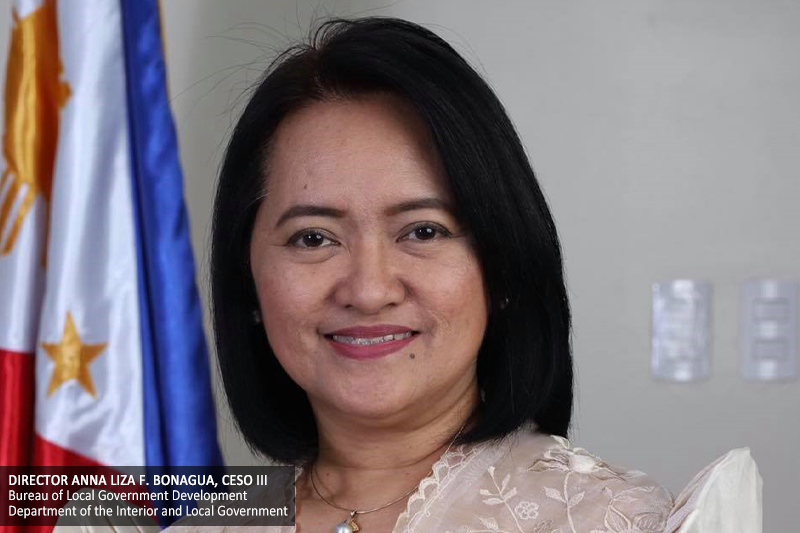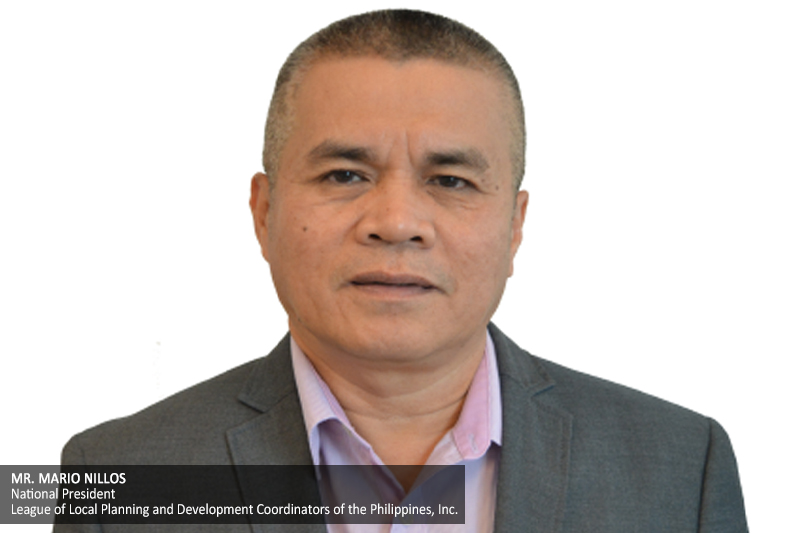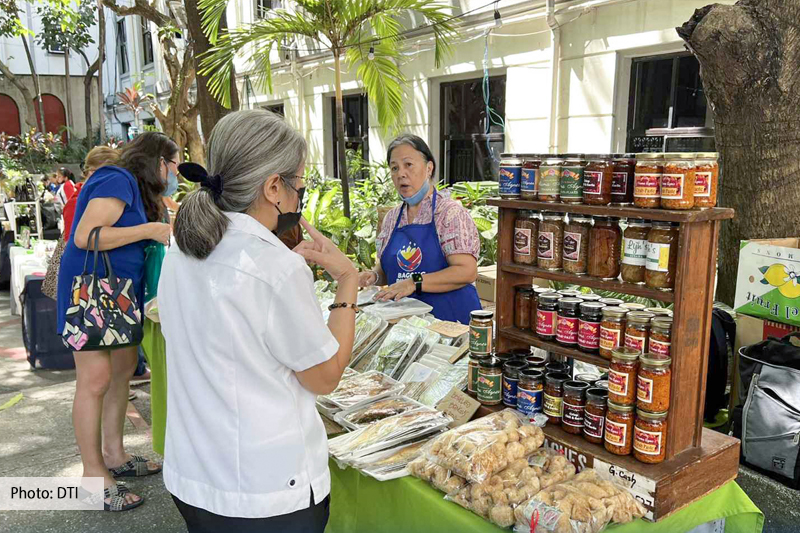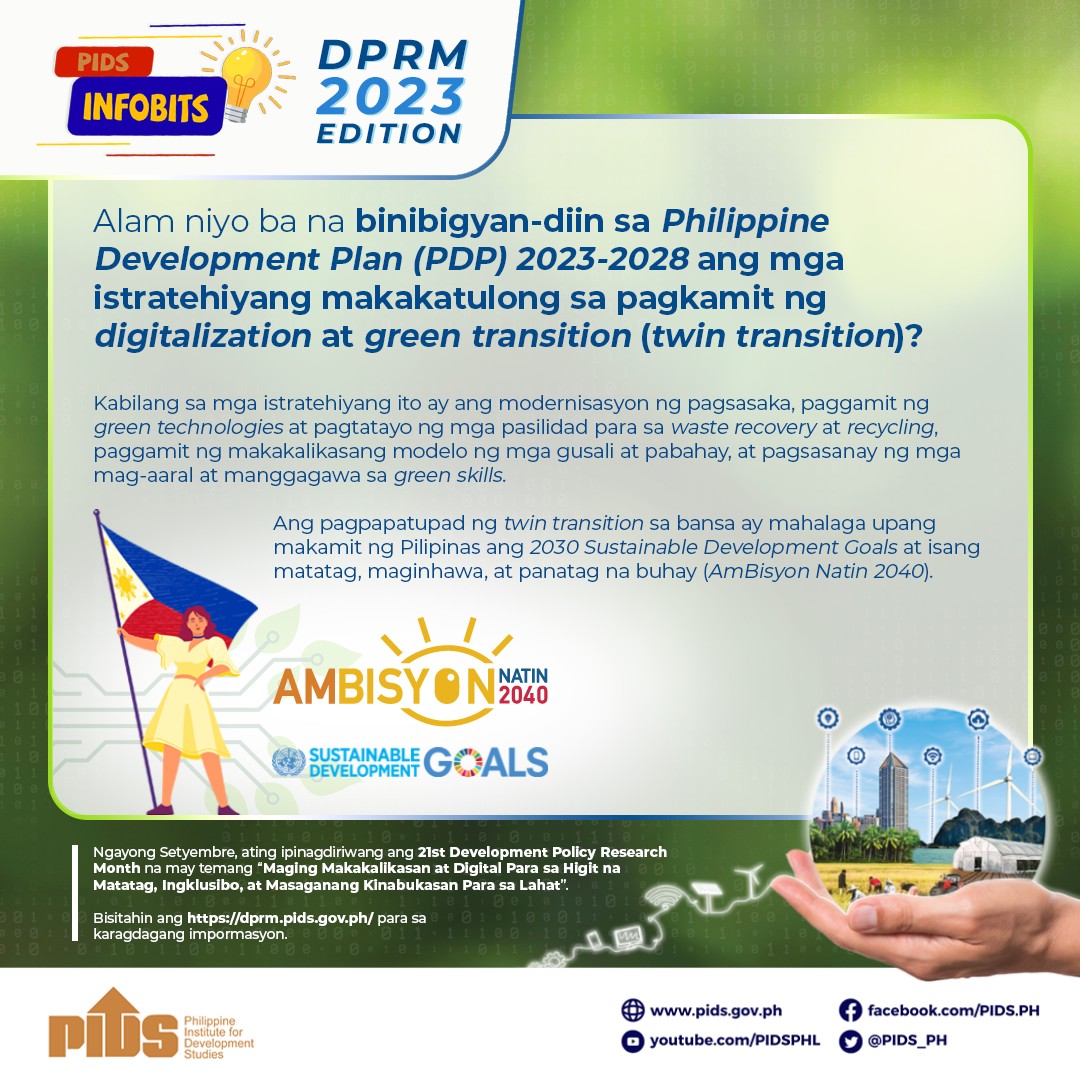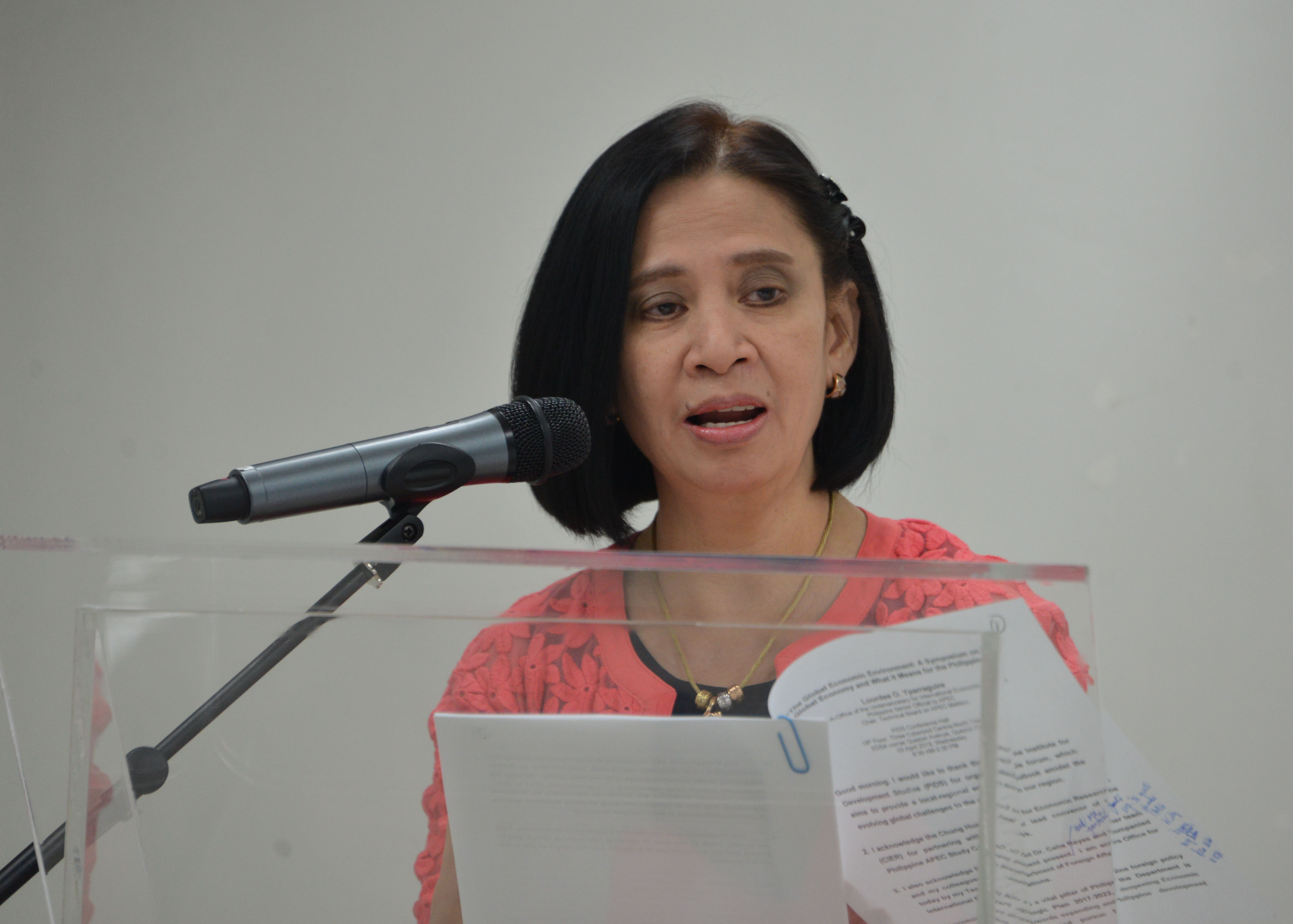
Against the backdrop of a changing global economic landscape, a foreign affairs senior official reiterated the importance of empowering people and ensuring inclusiveness and equality in achieving sustainable development.
In her speech at a symposium on "The Global Economy and What It Means to the Philippines" hosted by state think tank Philippine Institute for Development Studies (PIDS), Foreign Affairs Undersecretary for International Economic Relations Lourdes Yparraguirre said the challenges brought about by globalization and open regionalism should not hinder the country from aiming high.
"The Philippines must maintain the dynamism of its economy if it is to stay close to its goal of attaining a high-income status," she emphasized.
According to Yparraguirre, the country is on the right track with its long-term development agenda articulated in Ambisyon Natin 2040, which she described as “people-centered”. She noted that it is the people who create, drive, and benefit from the prosperity and dynamism of a country.
Likewise, she lauded the inclusion of accelerating infrastructure spending, promoting rural development, improving social protection programs, investing in human capital, and fighting corruption and criminality in the 10-point socioeconomic agenda of the current administration.
Meanwhile, global growth is expected to slide further in 2019 as a result of expanding economic inequality, financial market volatility, increased protectionism, and trade tensions.
According to the official, the dramatic shifts in the political landscape such as the United Kingdom's withdrawal from the European Union and the resurgence of the so-called America First policy, which led the United States (US) to scale back on global economic integration, are also posing challenges to the global economy.
"On top of that, the US and China—two of the world's biggest economies—are skirting around trade tensions while battling for the hearts and minds of many nations around the world with their respective big-ticket infrastructure programs and so-called debt book diplomacy," she added.
Despite the global headwinds, the Philippines continues to be one of the fastest growing economies in the region and in the world. In the last seven years, the country consistently posted strong gross domestic product (GDP) growth of above 6 percent. It also boasts a strong currency, a low debt-GDP ratio, robust currency reserves, a steady job market, and increased infrastructure spending.
Yparraguirre maintained that having a strong macroeconomic condition helps the country meet modern-day challenges, particularly in taking advantage of the opportunities ushered in by the Fourth Industrial Revolution (FIRe), the fourth major industrial era since the initial Industrial Revolution of the 18th century.
To prepare for the FIRe, the country has started to develop its local industries through its manufacturing resurgence program and by further capitalizing on the competitiveness of its services sector.
"Exports from the Philippines grew by 17 percent from 2011 to 2017. Industry-centered measures were further complemented by landmark legislations that aimed to increase the ease of doing business in the country," the official stated.
With jobs being rendered either obsolete or redundant because of the FIRe, she likewise stressed the need for retooling and preparing workers for the digital economy. ###
In her speech at a symposium on "The Global Economy and What It Means to the Philippines" hosted by state think tank Philippine Institute for Development Studies (PIDS), Foreign Affairs Undersecretary for International Economic Relations Lourdes Yparraguirre said the challenges brought about by globalization and open regionalism should not hinder the country from aiming high.
"The Philippines must maintain the dynamism of its economy if it is to stay close to its goal of attaining a high-income status," she emphasized.
According to Yparraguirre, the country is on the right track with its long-term development agenda articulated in Ambisyon Natin 2040, which she described as “people-centered”. She noted that it is the people who create, drive, and benefit from the prosperity and dynamism of a country.
Likewise, she lauded the inclusion of accelerating infrastructure spending, promoting rural development, improving social protection programs, investing in human capital, and fighting corruption and criminality in the 10-point socioeconomic agenda of the current administration.
Meanwhile, global growth is expected to slide further in 2019 as a result of expanding economic inequality, financial market volatility, increased protectionism, and trade tensions.
According to the official, the dramatic shifts in the political landscape such as the United Kingdom's withdrawal from the European Union and the resurgence of the so-called America First policy, which led the United States (US) to scale back on global economic integration, are also posing challenges to the global economy.
"On top of that, the US and China—two of the world's biggest economies—are skirting around trade tensions while battling for the hearts and minds of many nations around the world with their respective big-ticket infrastructure programs and so-called debt book diplomacy," she added.
Despite the global headwinds, the Philippines continues to be one of the fastest growing economies in the region and in the world. In the last seven years, the country consistently posted strong gross domestic product (GDP) growth of above 6 percent. It also boasts a strong currency, a low debt-GDP ratio, robust currency reserves, a steady job market, and increased infrastructure spending.
Yparraguirre maintained that having a strong macroeconomic condition helps the country meet modern-day challenges, particularly in taking advantage of the opportunities ushered in by the Fourth Industrial Revolution (FIRe), the fourth major industrial era since the initial Industrial Revolution of the 18th century.
To prepare for the FIRe, the country has started to develop its local industries through its manufacturing resurgence program and by further capitalizing on the competitiveness of its services sector.
"Exports from the Philippines grew by 17 percent from 2011 to 2017. Industry-centered measures were further complemented by landmark legislations that aimed to increase the ease of doing business in the country," the official stated.
With jobs being rendered either obsolete or redundant because of the FIRe, she likewise stressed the need for retooling and preparing workers for the digital economy. ###

